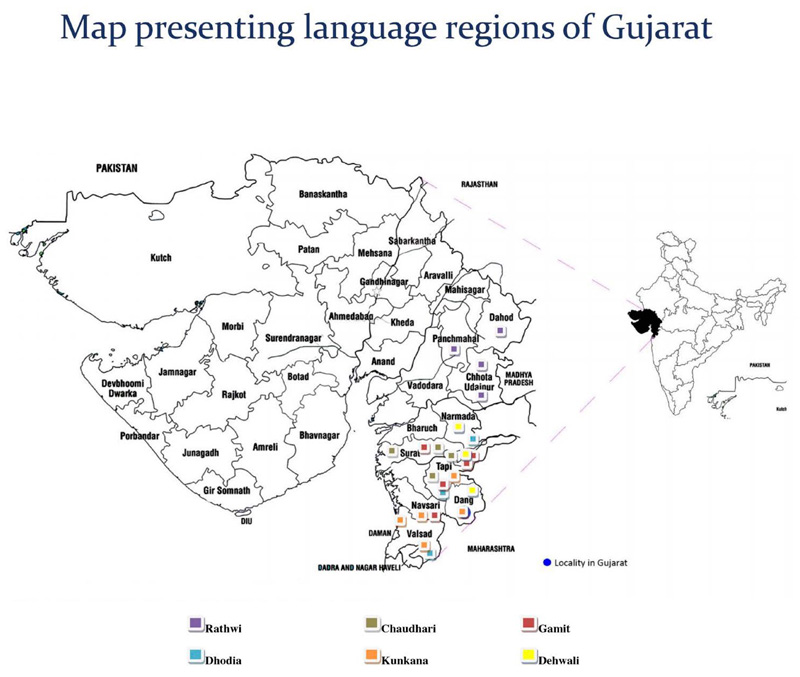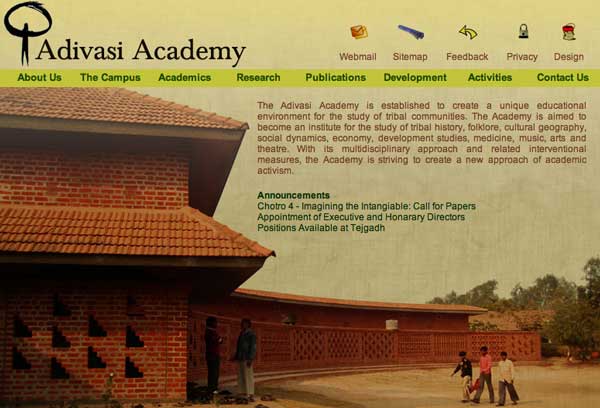DIGITAL COMMUNITY ARCHIVES FOR VERNACULAR MUSICS: CASES FROM INDIA
Aditi Deo (University of Oxford) | Read the full article here >>
[…] This article draws upon ethnographic research in small towns in north India with local small-scale initiatives to archive oral vernacular musics—musics described as folk and tribal. It explores the varied ways in which digital audiovisual archives of vernacular musics may materialize and circulate in the present day. Such community-based initiatives present curious alternatives to formal audiovisual archives, emerging through located relationships between people, musics, and technologies. My concern is with tracing the evolving relationships between communities, archivists, and musics through the mediation of digital technologies, examining how contextual technological practices may contribute to archival forms. Methodologically, my approach is informed by actor-network theories that view both human and non-human actors as agentive participants in social constitutions. Such an approach is especially productive in understanding how material changes associated with new technologies are integrally linked to social practices. Further, I suggest that such archives may be fruitfully viewed as gestures of community members towards claiming multivalent subjectivities—as cultural mediators and as technological experts. Archiving functions in these contexts as an aspirational practice—a mode of reification of precariously located vernacular identities and the coalescence of communities through technological modes around the notion of music in particular, and culture in general. […]
Such community archives that were part of my research were based in two distinct musical regions in northern India: Rajasthan […]; and the Adivasi (tribal) region at the cusp of the two states of Gujarat and Maharashtra where oral culture is closely linked to tribal identities in the context of gradual erosion of tribal languages. In spite of their self-proclamation as insiders, the initiatives were often part of national and transnational networks of influence, demonstrating a spectrum of relationships between archivists and musics. […]
The archive at the Adivasi Academy in the small village of Tejgadh in Gujarat was part of its museum centered on regional tribal cultures. The museum-archive was shaped by complex non-local influences, most crucially, the vision of its founder, language scholar Dr. Ganesh Devy, and the participation of professional vocalist Prachi Dublay who helped to collect and then transcribed the tribal songs. At the same time, it was developed with an explicit philosophy of reclaiming a tribal voice that had been silenced by colonial and postcolonial histories. The music collection was being developed and managed, quite autonomously, by Naran, Vikesh, and Neepa— three members of the tribal Rathwa community, all of whom had completed diploma courses in Museum Studies offered at the academy. […]
Academy founder, Dr. Ganesh Devy, has described the condition of tribal communities in the region through the metaphor of aphasia, a neurological disorder that causes loss of speech and language skills. According to him, the loss of languages and oral culture has resulted in tribal communities being rendered, literally, speechless. […]
For in-stance in 2012, the archive in Tejgadh produced a set of CDs of selected tribal songs from their collection. Vikesh, one of the archivists, explained that they had handed some sets to drivers of shared shuttle vehicles in the region, presumably to be played in the vehicles as they transported passengers. He also expressed hope that regional vendors of digital music would rip these CDs and thus circulate the music in wider networks of local grey economy and non-economic exchanges. […]
The recording of sound in these regions in such political context represents a conquering of this aphasia—a recovery of communicative abilities. Circulating and sharing the recordings outside the community completes the communicative act. For archivists at the academy, providing access to the music through online modes and thereby acquainting the world with the uniqueness of tribal culture was vital to archiving. It was an assertion of cultural identities marginalized from mainstream society—identities around which a larger political community may coalesce. However, as important as the possibility for self-representation in this context was the direct engagement with technologies as a mode of acquiring coevalness with mainstream society. Archiving, here, emerged as a multivalent practice that served not only to achieve the immediate goal of music documentation but also to redress inequities perceived by cultural heritage communities through technological modes.
4. Conclusion
The technocultures of community archives present strong contrasts with those of most formal institutions that often aspire to standardization in preservation technologies as well as institutional policies for access and dissemination. On the other hand, as is evident in the three initiatives that I discuss, given the possibility to maintain music collections simultaneously in multiple places, more established archives may connect with community-based initiatives in search of collaborative partnerships. […]References include:
Devy, Ganesh. A Nomad Called Thief: Reflections on Adivasi Silence. New Delhi: Orient Longman, 2006.
[see full article for all references]
Source: iasa journal no 41 – September 2013
https://www.academia.edu/38102924/DIGITAL_COMMUNITY_ARCHIVES_FOR_VERNACULAR_MUSICS_CASES_FROM_INDIA?email_work_card=title
Date visited: 11 January 2019
[Bold typeface added above for emphasis]
Research the above issues with the help of Shodhganga: A reservoir of theses from universities all over India, made available under Open Access >>
Please use this search window to find books published in India
by the above mentioned authors and others on related issues
Technical support
Try the following in case Google Custom Search window or media contents are invisible here: (1) switch from “Reader” to regular viewing; (2) in browser’s Security settings select “Enable JavaScript”; (3) check Google support for browsers and devices | More >>
Find publications by reputed authors (add “open access” for freely downloadable content)
Tribal communities of Gujarat: Bhil, Chaudhari, Dehwali, Dhodia, Gamit, Kathodi, Kolgha, Kotwalia, Kunkna, Padhar, Warli [Varli] | In-depth research >>
Learn more
Adivasi Academy & Museum of Adivasi Voice at Tejgadh
Bhasha | Free eBooks & Magazine: Adivasi literature and languages
eBook | Adivasi Stories from Gujarat
Endangered language | Multi-lingual education
Ganesh [G.N.] Devy | Publications | Lecture “A View of Higher Education in India”
Languages and linguistic heritage | Central Institute of Indian Languages (CIIL)
Literature and bibliographies | Literature – fiction | Poetry
People’s Linguistic Survey of India | Volumes (PLSI) | PeoplesLinguisticSurvey.org
Video | A conversation with Pradeep Marawi – Gondi artist from Bhopal
Video | Adivasi pithora artist Desing Rathwa
Video | “Nations don’t make us human – languages make us human”: Ganesh Devy
Video | South Gujarat tribal music documentation by Bhasha – Gujarat

https://indiantribalheritage.org/?page_id=24973
